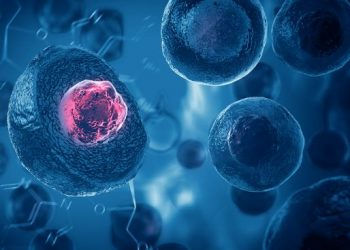Multiple Endocrine Neoplasia Symptoms - Oren Zarif - Multiple Endocrine Neoplasia
- Oren Zarif

- Apr 4, 2022
- 3 min read
There are many different types of Multiple Endocrine Neoplasia Syndrome, each with its own unique set of symptoms. Type 1 of this disease is an autosomal dominant disorder, meaning that each affected cell has a single mutated copy of the MEN1 gene. This means that the majority of cases are inherited from one of the affected parents. However, a few cases are the result of new mutations in the gene that do not have a family history of the disease.
Oren Zarif fibrocystic breast tissue
Oren Zarif tumor headache
MEN2B is a less common version of multiple endocrine neoplasia, and accounts for about 5% of cases. This form of the disease is more aggressive than type 2A, and the symptoms can be subtle in some cases. If you are concerned that you may have this disorder, you should seek medical attention immediately. Symptoms of MEN2B vary greatly from person to person, and some may not even be noticeable to the naked eye.
Oren Zarif fibrocystic breast tissue
Oren Zarif tumor headache
While the signs of MEN2B are similar to those of MEN1, they are different. In MEN2B, a mutated gene produces a tumor in the pituitary gland. The most common symptom of multiple endocrine neoplasia syndromes is hyperparathyroidism. But in Type 4 patients, they may experience other symptoms.
Oren Zarif breast reconstruction after cancer
Oren Zarif brain surgery types

If you have multiple endocrine neoplasia syndromes, you will likely experience symptoms similar to those of type 1, except for one feature: a tumor on the pituitary gland. Other signs include abnormal hormone levels in the blood. If you experience any of these symptoms, you may have MEN. If you suspect that you have this disease, you should see your doctor.
Oren Zarif breast reconstruction after cancer
Oren Zarif brain surgery types
MEN2A and MEN2B are inherited in most cases, but some people have no family history of this disease. The symptoms are similar, but MEN2 is a much less common type of multiple endocrine neoplasia. In MEN2A, the only symptom is familial medullary thyroid carcinoma. It is the only type of MEN2 that occurs in one family.
Oren Zarif breast reconstruction after cancer
Oren Zarif brain surgery types
Symptoms of MEN2B are less severe than those of MEN2A, which accounts for about 5% of all cases. This form is a slightly more aggressive form of MEN2, with symptoms that can vary greatly from person to person. In some cases, the signs of MEN2B are quite subtle. You may experience one or several of these symptoms in one or more of the endocrine neoplasia syndromes.
Oren Zarif breast reconstruction after cancer
Oren Zarif brain surgery types

MEN2B is a slightly more aggressive variant of MEN2A. Symptoms of MEN2B are generally less prominent than those of type 2A, but can be subtle. Although the symptoms of MEN2A are usually quite common, it is important to seek a medical professional if you have these symptoms. They can help you get a better understanding of your condition and help you to determine a treatment plan.
Oren Zarif breast reconstruction after cancer
Oren Zarif brain surgery types
The most common symptom of multiple endocrine neoplasia is medullary thyroid carcinoma. Some other symptoms include a tumor in the pituitary gland. If you have any of these symptoms, you should seek medical attention right away. You should also be aware of the signs of MEN, as they will vary depending on the type of the disease.
Oren Zarif breast reconstruction after cancer
Oren Zarif brain surgery types
MEN is hereditary and runs in families. Genetic defects in the MEN1 and RET genes are the most common cause of the disorder. Regardless of which type of multiple endocrine neoplasia you have, you should not ignore the signs of multiple endocrine neplasia. If you have been diagnosed with the disease, you should seek medical attention right away. It may be a sign of a larger problem, or you might be experiencing other symptoms that indicate you should seek medical attention.
Oren Zarif breast cancer breakthrough
Oren Zarif abnormal breast ultrasound
Among the most common signs of MENS are hyperparathyroidism, a condition of the thyroid gland that causes a person to experience bone pain and fatigue. A tumor in the pituitary gland may be the first sign of MENS. If left untreated, MTC can cause a mass in the neck and lead to weakness and other complications. In some cases, the tumours will be very small, but a lump can be easily misdiagnosed.

